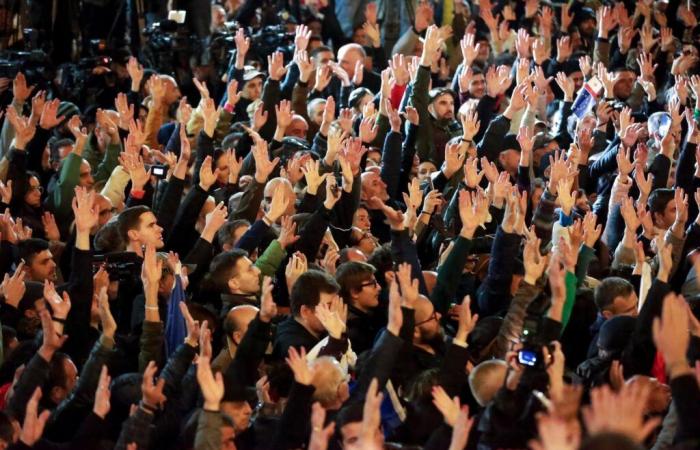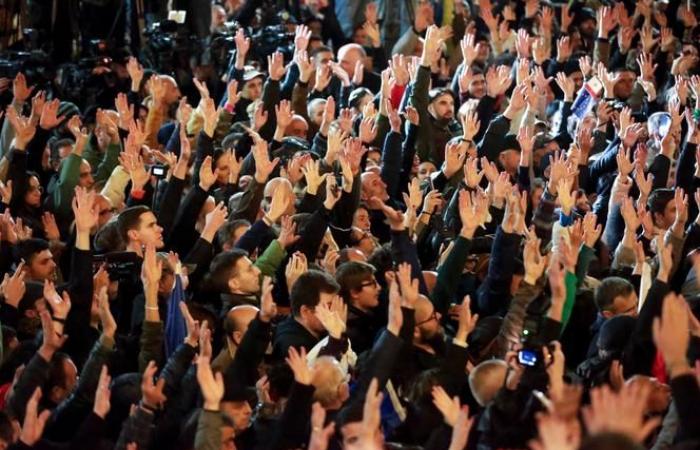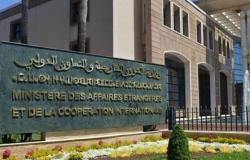Discontent is brewing in Georgia, where the pro-European opposition has called on its supporters to demonstrate on Monday, November 4, to protest against the results of the legislative elections of October 26, which it refuses to recognize, demanding the holding of a new vote.
Officially, the legislative elections were won by the Georgian Dream party, in power since 2012, with 53.9% of the votes against 37.7% in favor of the opposition. Many Georgians see these elections as a major turning point for their country, fearing that the ruling party, founded by billionaire Bidzina Ivanishvili, who made his entire fortune in Russia, will bring them back into the fold of the big northern neighbor rather than towards the much-hoped-for European integration.
First observation, these results “do not reflect the choices of the Georgian population”declared the day after the election the NGO My Vote, a local observation mission bringing together dozens of Georgian civil society organizations. Present in 1,131 polling stations, out of a total of 3,000, its observers denounced “violations of voting secrecy, identity substitutions, multiple votes, physical and verbal attacks, flaws in marking, obstructions to observation, the presence of unauthorized aggressive people and lack of impartiality members of electoral commissions ».
Read also | Article reserved for our subscribers EU member states divided and embarrassed after disputed pro-Russian victory in Georgia
Read later
According to the organization’s spokesperson, Londa Toloraïa, “the election day took place in a context of serious and substantial violations”. In fact, the problems detected “were part of a broader scheme to alter the final election results”she noted. In the process, My Vote filed a complaint, demanding the annulment of the results in 246 polling stations, or around 417,305 voters, in this country of around 4 million inhabitants.
“Vote buying”, “pressure”, “intimidation”
Without going so far as to question the results of the election, foreign observers criticized its conduct. “Taking into account the cases of vote buying, the widespread climate of pressure and the intimidation organized by the parties before and during the elections, particularly in rural areas, we express our concerns about the electoral conditions, in particular the ‘unequal playing field, which undermines confidence in the outcome’declared Iulian Bulai, representative of the Parliamentary Assembly of the Council of Europe, the day after the vote.
You have 69.31% of this article left to read. The rest is reserved for subscribers.







